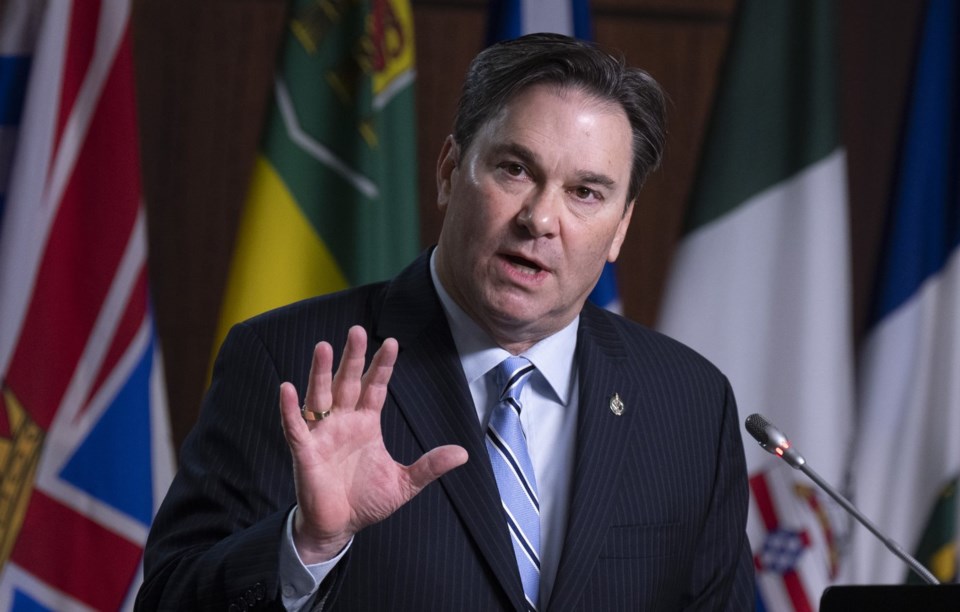OTTAWA — Interim NDP leader Don Davies said Friday his party is in "very early" discussions with Prime Minister Mark Carney's government about being granted official party status in the House of Commons.
The NDP was reduced to seven seats in the recent general election, below the 12-seat threshold for official party status in the Commons. It's an outcome Davies said "no one really foresaw."
The Prime Minister's Office declined to comment on any discussions with the NDP.
Parties that lack official status lose out on financial resources provided by Parliament, get to ask fewer questions in question period and don't have guaranteed spots on standing committees.
"I think one of my primary objectives is to make sure that our caucus has the resources we need to discharge our functions in Parliament, but more importantly, to advocate effectively for the 1.2 million Canadians who voted for us," Davies said Friday.
"So we are actively working to try to make sure we get those resources for our caucus."
Davies said parties at the provincial level have been granted official status in the past after failing to meet the threshold.
Kathleen Monk, who was NDP communications director under Jack Layton, said securing financial resources is essential to the party's relevance.
"Don Davies needs to ensure in the next eight months, maybe six months, that New Democrats don't fall off the map, that they're still a part of the parliamentary process and the media narrative," Monk said.
Many federal NDP employees have been laid off since election day due to the party's loss of parliamentary funding. They include people in senior leadership positions, communications staff and researchers.
Davies said that he and the caucus are looking at ways to use their remaining staff effectively and could seek resources outside the party.
"There's other ways that we can tap into public resources. We may have to engage civil society in ways that can help us in ways we haven't before," he said. "So it's actually kind of exciting to reimagine how we can open up a process and actually get more input into our parliamentary caucus."
Davies said the party is still setting up the framework for a leadership contest to choose a permanent replacement for former leader Jagmeet Singh.
He said he stepped up to serve as interim leader in part because he's the longest-serving MP in the NDP caucus, with 17 years of experience.
The party is also beginning the process of reviewing its election campaign and planning to rebuild.
While he acknowledged that the work of MPs in Parliament is important, Davies said most Canadians pay little attention to day-to-day operations in the Commons. He said he and his caucus will emphasize community outreach in their efforts to rebuild the party's grassroots support.
"I think the challenge for us is also an opportunity, and that is, we're going to have to get out of Parliament and go meet Canadians where they're at, talk to them and start engaging in the dialogue that is not only so essential to our work, but I think is actually something that's going to be a strength for the NDP moving forward," he said.
Monk said the NDP needs to focus on reconnecting with Canadians and being seen as a party that talks about more than just health care.
"I think that New Democrats somehow have lost their way over the last few years, where they are no longer the answer to Canadians' economic problems, or haven't been," she said.
"The scope of the issue set that New Democrats have to do well ... has to go beyond just health care and the care industry. It has to include economics, it has to include international relations and defence. We have to do well on all those fronts."
Davies said his priorities for Parliament include advocating for more "truly" affordable housing, expanding health care access and creating "good jobs."
Davies agreed that the NDP needs to reconnect with working class Canadians. In the election, the NDP lost its Ontario foothold in industrial and manufacturing cities like Hamilton, London and Windsor.
"We have to go back and I think re-establish our working relationship with working Canadians, with organized labour, with gig workers, young people, people working in every sector of the economy," Davies said.
He said answering why that connection with working Canadians was lost will be part of the party's post-election review process and he doesn't want to "prejudge" those conversations.
This report by The Canadian Press was first published May 9, 2025.
David Baxter, The Canadian Press



